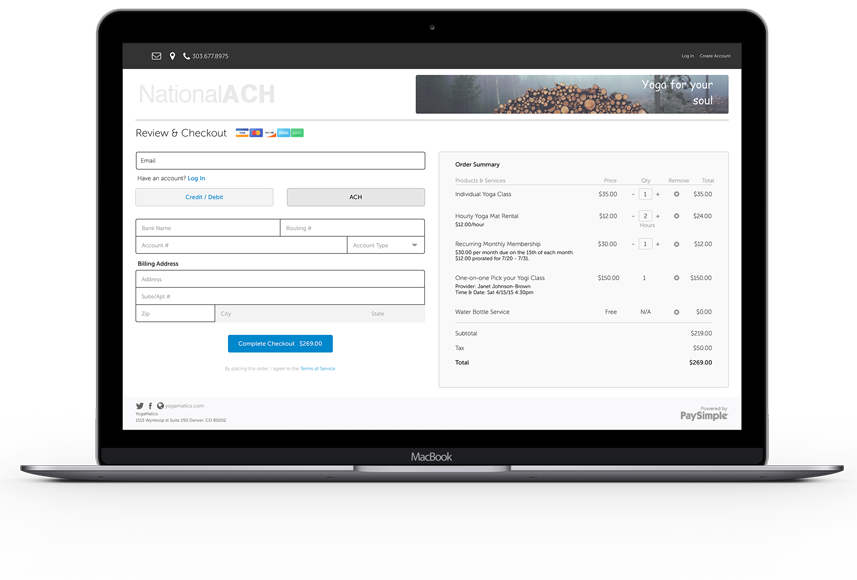Debt Collection Merchant Accounts
How Echecks Increase Your Profits
With the latest changes in ACH regulations, collection firms are now forced to find echeck processing that does not use the ACH network.
The consequences of this change are creating a certain amount of anxiety within the collections industry. Which is sure to increase in the coming months. Finding new and additional payment processing accounts has become a top priority for many collection firms.
The best way to protect your business is to move your electronic check (echeck) processing off of the ACH network. Instead, use an echeck payment processing solution that does not use the ACH network. Since your echeck transactions will not process through the network, your transactions will not be subject to the arbitrary rules that NACHA has imposed on ACH merchant accounts.
As a result, you have much greater flexibility for both returned and revoked transactions. And you’ll keep your payment processing accounts safe and secure.
ACH Processing Can Put You at Risk
New ACH regulations limit the total number of returns to 15% and unauthorized (revoked) transactions to 0.50%.
Sure, companies that are in low or standard risk categories may be able to handle these changes. But it’s completely different for the collections industry.
Let’s face it. Collecting debt is challenging.
Debtors owe the money and may not have it. Increasing the risk of a revoke. Or they may spend the money elsewhere before the debt payment transaction clears. Resulting in a bounced check. ( “NFS” return)
The cap on returns is is particularly challenging for collection firms. Part of the very nature of the business is that the people owing the money have money problems. Therefore, there is a greater than average risk of transactions returning for NSF.
About 85% of the time, the NSF transactions will clear on the second or third submission attempt. However, the NSF will still count as a return on the ACH merchant account.
The cap on unauthorized (revoked) transactions will also impact the collections industry. The unauthorized return rate is based on the number of debits returned divided by the number of debits originated, over a period of 60 days. An ACH transaction is classified as “unauthorized” when the account holder contacts the financial institution and claims that the transaction is not legitimate.
Before the changes to the ACH network, revokes could be up to 1%. But the reduction to 0.5% is difficult for merchants in any industry. Yet, especially so for collection firms.
Echeck transactions traditionally have lower chargeback rates compared with credit card transactions (although cards still permit chargeback ratios up to 1%). Still, due to the nature of their service, collection agencies often receive a higher number of superfluous disputes. For example, a debtor might initially authorize the payment, then promptly go and dispute it in order to obtain a refund. It’s all part of the business.
Processing Outside the ACH network
Echeck transactions clear through the Federal Reserve. There are 2 ways in which echeck transactions are processed for submission to the Fed.
The first method is to process through the ACH network. The second processes transactions via bank-to-bank transfers based on Check 21 technology.
The customer experience with both methods are the same. The debtor provides routing and account information. Funds are electronically debited from debtor’s bank account and credited to the merchant’s bank account.
When you process through the ACH network, your transactions are subject to the rules of the network, including the limits on returns and revokes. When you process outside the network, you have greater latitude regarding returns and revoked transactions because you are not constrained by ACH rules.
Of course, you’ll still want to keep an eye on your returns and revokes. But, when you process your echecks outside of the ACH network, you protect your business, You don’t have to worry about losing your processing account due to the arbitrary ratios required by the ACH network.
Conclusion
It’s inevitable that collection firms will soon receive pressure from ACH payment service providers. And will fast discover the pains of trying to fit into the new regulations.
The smartest way to protect your echeck processing account and safeguard your cash flow is to process outside of the ACH network.
Take advantage of the effective, safe, fast and flexible echeck processing services that are available to you
- Faster than ACH. Same or next day business day clearing of items
- Much greater flexibility for returns & unauthorized
- User experience is the same
- Quick and easy to implement
Interested in a better way to process your echeck transactions?
Contact info@nationalach.com today.
